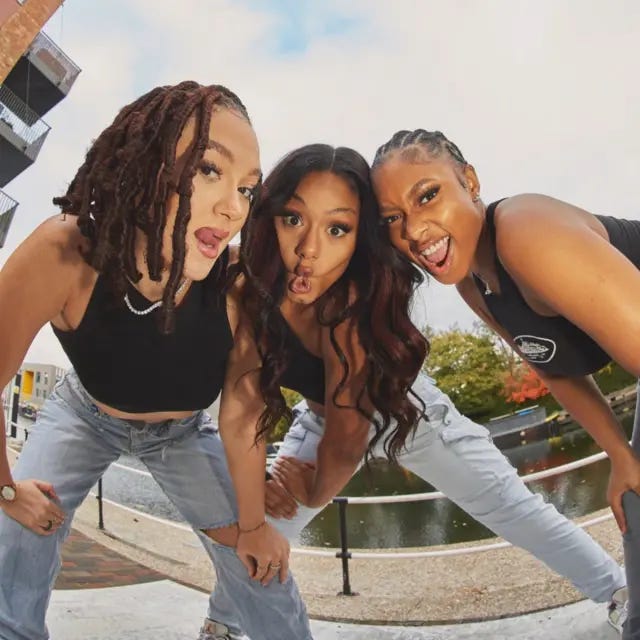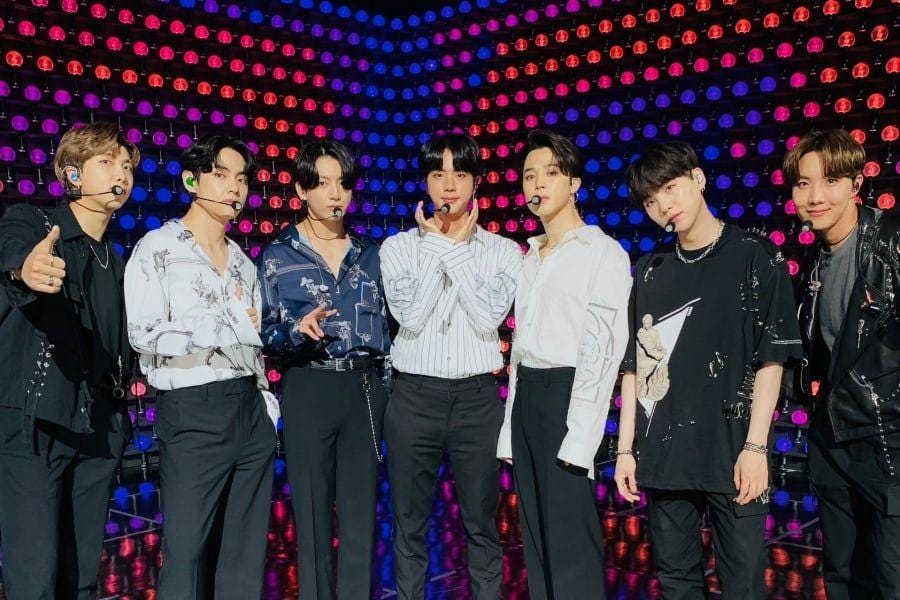FLO's Global Strategy: What Can We Learn?
Each FLO member is building their own identity without disrupting the group dynamic (which, let’s be honest, even the Spice Girls struggled with).
Have you ever noticed how, every few years, a British artist blows up globally, and suddenly, the same old conversation kicks off?
'They’re trying to sound too American.'
Well, it’s happening to our favourite girl group, FLO, which is funny because you’d think everyone knows that music in 2025 doesn’t belong to one postcode, one accent, or even one continent.
It’s borderless.
But, there was a time when British acts had to choose, be "British British" or go all-in on the American market. Those days are over. FLO isn’t picking a side; they’re blending influences and creating something entirely their own.
While critics debate whether they’re trying too hard to be American, FLO is busy building a global brand.
And if you ask me, their future moves will reflect that.
FLO’s global appeal means they’ll likely lean into partnerships that reflect their mixed influences.
Instead of just a general beauty or food collab, why not something that speaks directly to their identity?
Streetwear? A British grime-meets-US hip-hop aesthetic, bridging London and Atlanta sounds.
Beauty? A skincare line blending K-beauty innovation with UK natural brands.
Food? A UK/Afro-Caribbean fusion collab, paying homage to their roots, think a modern take on classic Caribbean flavours with a high-fashion twist…something in the vein of Melissa’s Wardrobe or Sabrina Carpenter’s Dunkin’ Donuts moment.
FLO isn’t just blending sounds, they’re blending cultures. And the brands that get that?
Maybe even a music-led brand activation. The possibilities are endless. I digress, but you get the point, this isn’t about assimilation. It’s about evolution.
In fact, 74% of Gen Z claim that social media plays a massive role in their discovery of new music, according to a 2023 survey by Pew Research. FLO’s ability to balance individuality with cohesion on platforms like Instagram and TikTok is exactly the type of strategy that connects with today’s audiences.
It’s not just about sounding global, it’s about being present in the spaces where global audiences live and interact.
Imagine FLO performing a stripped-back set on NPR’s Tiny Desk or COLORS, followed by a high-energy TV slot on Jimmy Kimmel or Jennifer Hudson’s show.
Fact: A 2024 study by Music Business Worldwide found that 82% of brands are now leveraging artist partnerships as a primary marketing strategy, especially in the fashion and beauty sectors. These partnerships are no longer just about endorsement, they’re about co-building ecosystems with the artists themselves.
FLO’s rising global influence puts them in a prime position to not only collaborate with brands but to shape the very stories those brands want to tell. It’s a win-win.
The BTS Blueprint:
Speaking of global strategy, let’s talk about BTS. Some wonder if they’re old news, but let’s be real, they’re not going anywhere.
While other artists are still figuring out virtual concerts, BTS mastered it years ago with events like (Bang Bang Con), drawing millions.
Their secret? They never treated online spaces as an afterthought, they made them part of the main stage.
FLO seems to be taking notes. Each member is also creating their own identity without disrupting the group dynamic, something even the Spice Girls struggled with.
Their social media strategy balances individuality and cohesion, a tricky feat, but they’re making it work.
So, here's your homework:
If you're a brand looking to tap into music culture in 2025, here’s your playbook:
Stop thinking in binaries (British/American, East/West, Traditional/Digital).
Look for artists who aren’t just crossing cultural boundaries, but erasing them.
Value authenticity over audience size.
Think ecosystem, not endorsement.
Gen Z accounts for 40%+ of global consumer spending and values authenticity. The next wave of stars won’t fit neatly into one genre, one city, or one market, they’ll belong everywhere and nowhere at once.
The future of music isn’t about where you’re from. It’s about how you connect.
For brands and marketers, the next wave of global stars won’t fit neatly into one genre, one city, or one market. They’ll belong everywhere and nowhere at once, shaping culture, not just reacting to it.
So, instead of asking if an artist is "too American" or "not British enough," the better question is: are they building a world people want to be part of?
Because in 2025, audiences don’t just follow artists, they invest in their ecosystems, their values, and their vision.
And the brands that understand this?
They won’t just be sponsoring talent. They’ll be shaping the future with them.
Until next time, keep listening, keep learning, and keep evolving.
And make sure you digress often. Curiosity is key to winning in this game.
Charlotte
If you missed last week’s newsletter:





